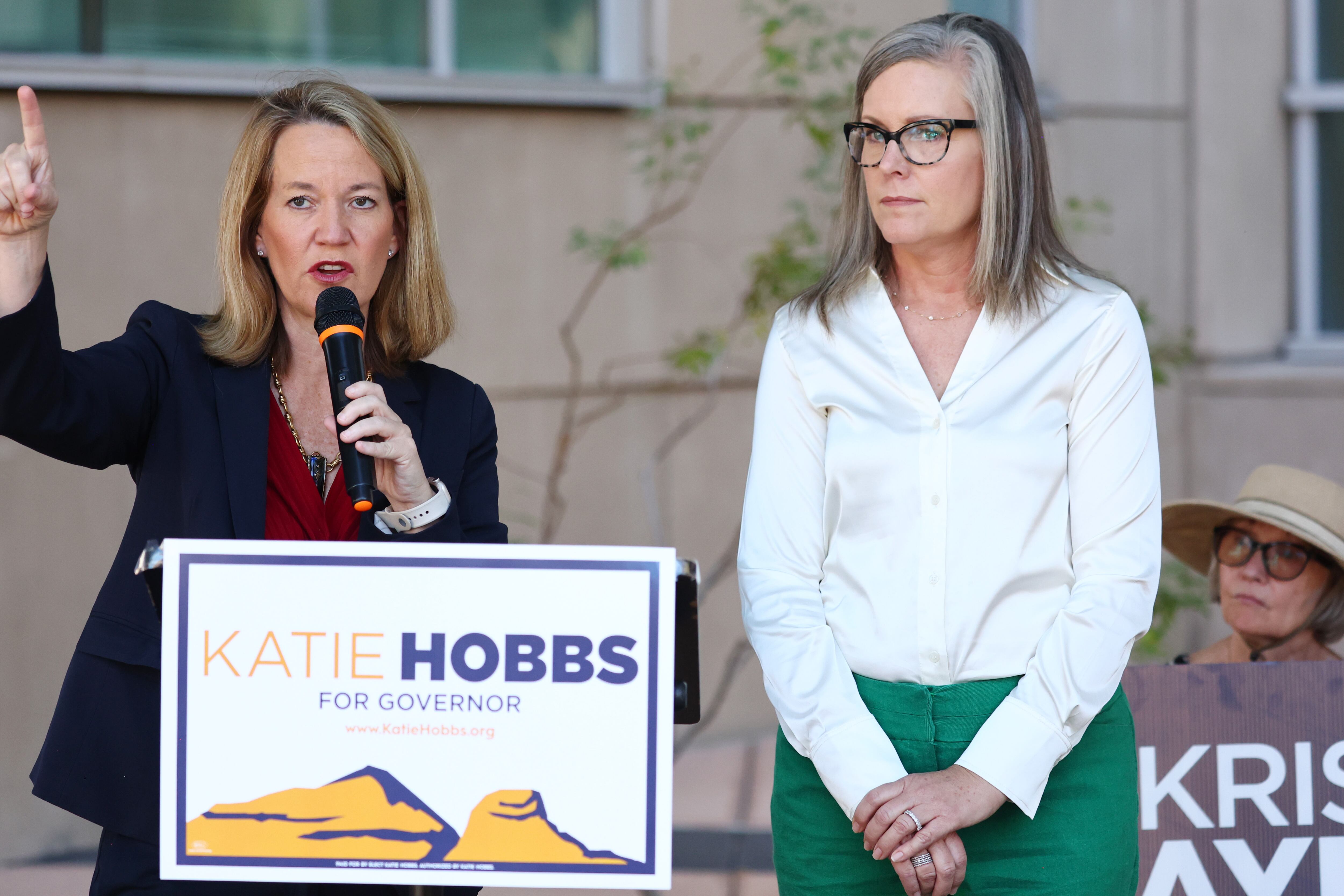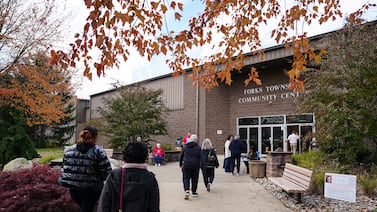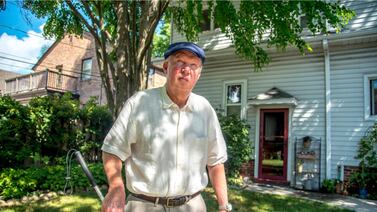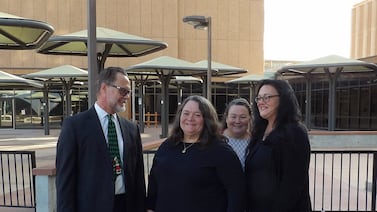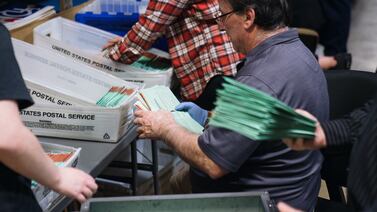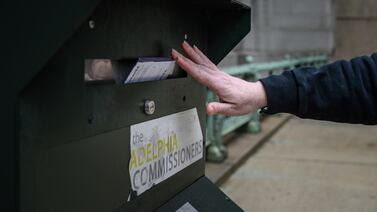Votebeat is a nonprofit news organization reporting on voting access and election administration across the U.S.
Arizona Attorney General Kris Mayes is suing Cochise County for giving its recorder near-full control over the county’s elections, according to a lawsuit Mayes filed Tuesday.
Mayes believes that, when agreeing last week to give Recorder David Stevens the authority to run the county’s elections, the county supervisors weren’t clear enough that they still have the final say over certain decisions, according to the Arizona Superior Court complaint.
State law requires the supervisors to approve decisions such as where to put voting centers and who to hire to work the polls, for example, and they must also finalize election results.
In a statement Tuesday, Mayes equated the agreement to an “unqualified handover” that could give Stevens the potential to cloak future changes to the county’s elections from the public.
“I am deeply concerned this move might shield or obscure actions and deliberations the Board would typically conduct publicly under open meeting law,” Mayes wrote.
Mayes is asking the court to stop Stevens from exercising the authority given to him in the agreement, to stop him and the supervisors from spending money related to the agreement, to recover any related money that has already been spent with interest, and to declare the agreement void.
Already, Mayes is investigating potential violations of the state’s open meetings law related to the board’s election administration decisions over the past several months, according to letters her office sent the supervisors last week.
Mayes, a Democrat, is taking aim at the Republican-controlled board of the southern Arizona county that was twice found in violation of state law last year, first when attempting to complete a full hand count of ballots cast in November’s election and then when they refused to certify the county’s election results. The supervisors began considering giving Stevens — an election skeptic with close ties to former GOP secretary of state candidate Mark Finchem — more power over elections after the county’s elections director, Lisa Marra, refused to go along with the illegal hand count, and Stevens supported it. Marra eventually resigned, citing harassment and disparagement.
The two Republicans on the board, Supervisors Tom Crosby and Peggy Judd, approved the new agreement with Stevens on Feb. 28 even though Mayes’ office had warned the supervisors it had concerns. According to Mayes’ complaint, supervisors also moved ahead against the advice of the county attorney, who agreed the plan was illegal.
Reached by phone Tuesday, Crosby said that he believes the supervisors had the authority to enter into the agreement. But he also said that he and Judd were clear when approving it that they would be willing to amend it if needed.
“From the beginning, I have said that if the agreement needs to be tuned up, we can tune it up,” Crosby said. “In other words, maybe [Mayes] will have really good ideas.”
Crosby said that he wanted to move forward with the agreement, despite Mayes’ warning, because of the timeliness of the matter. The county is holding a special district election in May, and given Marra’s resignation, it needed an interim elections director to plan the election. Stevens was the best choice, Crosby said.
The agreement put Stevens in charge of elections until shortly after the November 2024 presidential election, and gave him the authority to appoint a permanent elections director.
Cochise isn’t the first county to give its recorder more duties than those prescribed under law. Arizona law splits duties between supervisors — who oversee the management of polling places, ballot counting, and Election Day voting — and the recorder, who oversees early voting and voter registration. But Maricopa County for decades allowed its recorder to run the county’s elections, and Yuma County currently does this as well.
Secretary of State Adrian Fontes told Votebeat recently he believes counties should have the authority to make decisions that best fit their needs.
But Mayes in her statement said that while the law does allow counties to give the recorder more election duties, Cochise County’s agreement crossed the line because it won’t “allow both entities to work hand in hand to fulfill their statutory duties openly and transparently.”
“While counties may appropriately enter into cooperative agreements with their recorders to manage elections, Cochise County’s agreement steps far over the legal line,” Mayes wrote.
The agreement, for example, appears to illegally give the recorder the supervisors’ authority to hire elections staff, decide on the budget, and present the finalized results of county elections.
“Section 5 gives the game away: it provides that elections employees ‘shall report to and act under the supervision of the Recorder [to advise him on] all election and Special Districts related matters that are within the statutory responsibility of the Board,’” the complaint says.
Stevens has long expressed doubt about the security of elections, and he repeats many unfounded GOP talking points on the insecurity of mail-in voting and tabulation machines. He told Votebeat he believes there should be a conversation in Cochise County about eliminating machines and instead hand-counting ballots, and he is pursuing a state grant to add unprecedented security features like watermarks to the county’s ballots.
Mayes worries that Stevens now may be able to move forward with decisions without the public knowing, in contrast to the supervisors, who were required to approve decisions in public.
“If Defendants are allowed to implement the Agreement, the residents of Cochise County may be deprived of the full transparency to which they are entitled regarding public officials’ deliberations about systemic changes to the conduct of elections,” the complaint says.
Jen Fifield is a reporter for Votebeat based in Arizona. Contact Jen at jfifield@votebeat.org.


